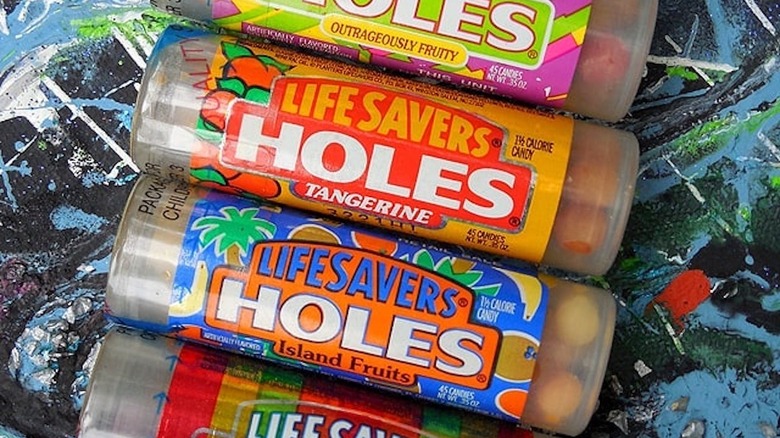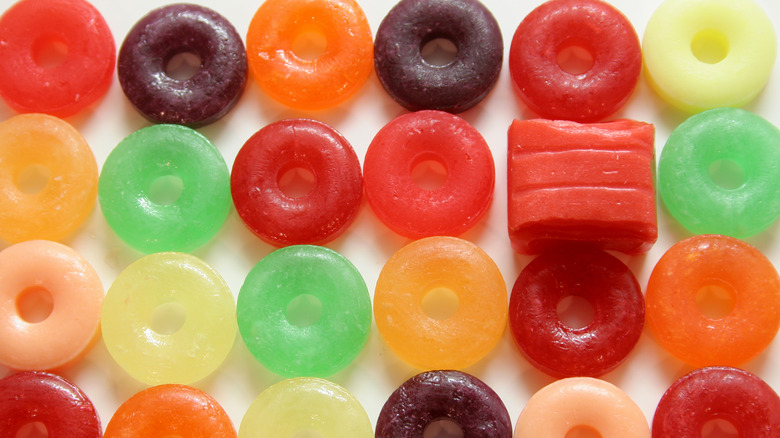Whatever Happened To Life Savers Holes?
Originally introduced in 1912, Mars, Inc.'s Life Savers is a popular candy that has stood the test of time. However, even wildly successful companies occasionally make mistakes or market miscalculations.
Remember when Coca-Cola decided it would be wise to fix something that wasn't broken and tweaked the formula for their celebrated flagship product? If you were alive in the 1980s you certainly remember New Coke, and chances are, you weren't too thrilled about it.
On its own website, Coca-Cola calls the ill-advised, short-lived New Coke experiment "one of the Most Memorable Marketing Blunders Ever." Of course, it's easier to engage in a little self-deprecating humor and laugh at your failures after you've recovered from them and returned to your former glory, but the point here is that not every concept is a winner.
Life Savers Holes candy was another "here today, gone tomorrow" item, but the reason for its failure was not because it tried to replace the original.
A fate that was hard to swallow
Unlike New Coke, Life Savers Holes offered essentially the same flavor and taste as Life Savers, just in "non-ring form," as Business Insider explains.
Eat This, Not That! compared them to donut holes, describing them as that "little piece of hard candy that came from making Life Saver's rings." Life Savers Holes briefly appeared in stores in the second half of 1990, but by January 1991 they were already being pulled from shelves.
In a tragically ironic twist, a candy with the name Life Savers was being voluntarily recalled because it presented a choking hazard. According to a Chicago Tribune article from January 31, 1991, there were a few documented instances of young children and teenagers "chewing on the package's flip-top plastic cap" who had then "swallowed it or gagged on it."
Although the incidents did not result in any injuries, Life Savers Holes were removed with the goal of modifying the packaging. An attempt was made at reintroducing them later in 1991, Business Insider notes, but the product never recovered and soon disappeared from stores altogether.

